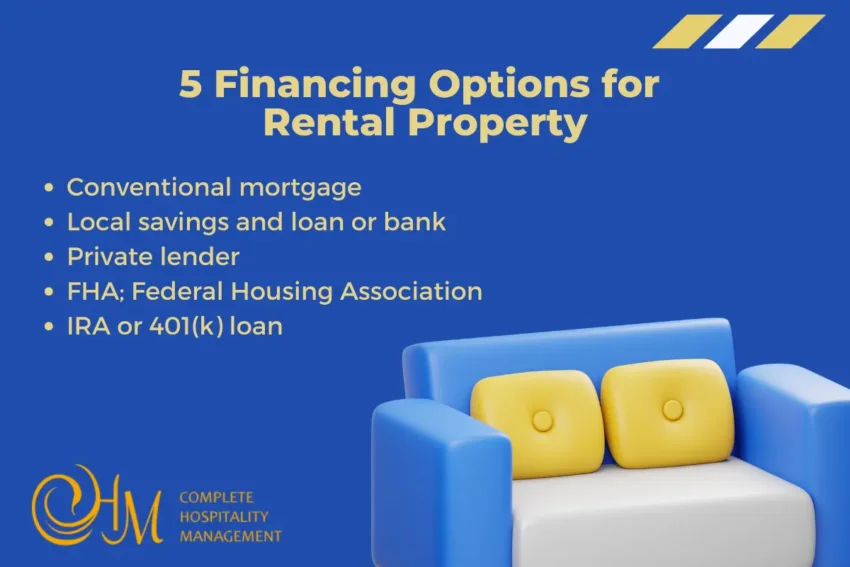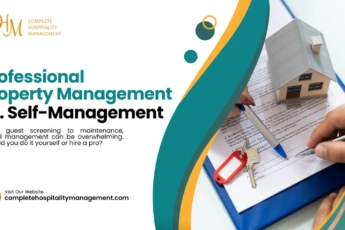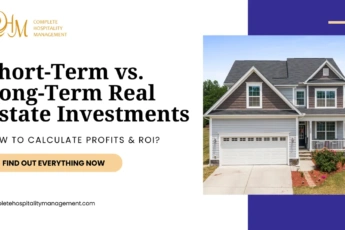Is Rental Property a Good Investment in 2026 – 7 Important Tips to Make It Successful and Profitable
Buying a home to rent out is one of the world’s most used practices in recent years. This business model has been characterized as moderately profitable, and most importantly, it is usually stable and easy to implement. But is this way of generating semi-passive money still beneficial? In this article, we will give you the necessary guidelines to purchase a property to rent a thriving business and define if a rental property is a good investment today.
We want to highlight that all businesses have their risks or exceptions. Buying an accommodation to be rented out and generating some profitability for it has its cons, which we will mention a little later. You must have as much information as possible before making any risky investment.

A rental property as a good investment: 7 tips to make this business successful
Is it worth buying a farm to rent it out?
Another modality that has gained strength in recent years is buying farms, farmhouses, or lots to build and then using them for rent. This modality is different from leasing. The rental modality is based on offering the property for a limited time. Usually, it is used as a hotel, rent per night.
This type of modality is sometimes much more profitable than renting the same farm. When a property is rented, it must have a much more affordable value to be paid on a recurring and monthly basis. When renting it, this value per night can be up to 10 times higher than the average value since the rent of this type of farm is made on particular dates or festivities of the same people.
Is it profitable to buy a second home to rent out?
This question is subjective. It will always depend on many external factors affecting the investment value and its return. In general, it can be profitable and become a sustainable and stable source of income. This’s why it is currently a modality widely implemented by all kinds of people, real estate companies, and even anyone without knowledge of the subject.

5 the most popular options for financing rental property investments
Usually, this type of investment is made through a loan. Then the property is made available to a real estate agency that carries out all the procedures to be leased with benefits for the tenant. Now, we see people who rent a home without intermediaries. This practice was widely used a few years ago but has lost strength due to the significant disadvantages of the control and guarantees it offered.
Advantages of renting out a house or apartment
A rental property can be a really good investment. This type of business offers benefits that captivate and drive to implement it as a business model and income generation. Next, we will list the 3 main short and long-term benefits of investing in rental housing.
The following advantages are only our perspective and not necessarily reality. It should be taken as a basis or guidelines and never as a decisive factor in making decisions.
- Periodic and stable income: One of the most attractive advantages for real estate investors when renting an apartment is the constant and regular monthly income maintained during the period in which the person is occupying the house.
- Easy to rent: Currently there is a great demand to occupy houses for rent, every day there are more people occupying the corners of the world and less space to have their own house, for this reason, it is usually easy to constantly receive offers to occupy a place.
- Safe business: Real estate agencies have transformed the rental landscape, offering enhanced security compared to the past. Gone are the days of dealing with unreliable tenants who skipped rent payments and posed challenges. These agencies provide a safety net through insurance and policies, guaranteeing monthly consistent rental income, regardless of the occupant’s behavior.
We strongly recommend anyone wanting to engage in the vacation rental business create their own website and list their properties on it. Having your own website has many advantages, such as communicating directly with guests, avoiding additional costs for contractors on whose platforms (Airbnb, VRBO, Booking, etc) you intend to list your property and much more.
Disadvantages of leasing real estate to tenants
Like any business, it is not rosy and profitability is not 100% guaranteed. Our good investment can become a great nightmare in some instances.
- Additional expenses: Like any business, home ownership involves investment and upkeep. Homes are inherently susceptible to issues, demanding periodic adjustments to keep tenants content and maintain value. Structural damage and ongoing maintenance bring extra costs, potentially reducing profitability beyond expectations.
- Difficult to rent: While we highlighted renting’s ease as an advantage, it’s not universal. External factors, like location, value, accessibility, structural issues, and neighbors, can complicate matters. These circumstances might lead to extended periods without tenants, stretching into months or even years.
- It’s not an exponential source of income: Profitability hinges on revenue growth. However, in housing, stability rules. Rents remain steady, often for a year. A slight annual increase is feasible. Yet, long-term wealth isn’t guaranteed. Housing provides reliable, sustained income but not substantial riches.
One of the main reasons for the failure of the vacation rental business is that newcomers to this business neglect the services of experienced professionals. We advise first to use the services of the management of your property. So you will quickly recoup your costs and become successful in the market.
7 tips to make your rental property a good investment
If you want to invest in rental real estate to get a recurring source of income and ensure it is as profitable as possible. We will offer you 7 tips to ensure that your investment can be recovered and start to be beneficial.
1. Location is the key to profitability
One of the essential key factors to make a rental property a great investment is its location. It affects the rental price and the possibility of renting it quickly. When people buy a house, they expect a quiet, safe area with access to schools, supermarkets, and other daily conveniences. Offering property in a dangerous, noisy area and far from civilization does not only affect the price. It will also make it much more difficult to rent and less profitable.
Profitable property location insights
| Aspect | Importance | Explanation |
|---|---|---|
| Demographics | High | Understand the target audience: age, income, family size, etc., to match the property’s needs. |
| Market Demand | High | Analyze rental demand in the area through vacancy rates and rent trends to ensure consistent income. |
| Economic Growth | High | Choose locations with a strong job market and economic growth for increased rental demand. |
| Proximity to Amenities | High | Properties near schools, shopping, parks, and public transport tend to attract higher rent prices. |
| Safety and Security | High | Safer neighborhoods generally yield higher demand and better rental rates. |
| Infrastructure | Medium | Access to roads, public transport, and other infrastructure impacts convenience and desirability. |
| Local Regulations | Medium | Be aware of zoning laws, rent control regulations, and property taxes that can affect profitability. |
| Competition | Medium | Research the number of rental properties in the area to gauge market saturation and potential rents. |
| Property Condition | Medium | Ensure properties are well-maintained; location alone won’t compensate for poor property condition. |
| Future Development | Medium | Investigate upcoming developments that could positively or negatively impact the area’s rental market. |
| Rental Yield | Medium | Compare potential rental income to property costs to estimate the profitability of the investment. |
| Tenant Profile | Low | Tailor the property location to the type of tenants you want to attract (e.g., students, families). |
| Lifestyle Factors | Low | Consider nearby entertainment, cultural attractions, and lifestyle amenities that attract tenants. |
| Natural Disasters | Low | Evaluate the area’s susceptibility to natural disasters like floods, earthquakes, or hurricanes. |
2. A used home has more advantages
Many people buy a new home to use it as a rental business. What they do not consider is that if the purpose is to rent it, the fact of being new does not have any advantage, it brings many more disadvantages, and the most prominent is that the investment value is usually higher than a used home. When renting, it must be offered for the same value as a used one, making the return on investment take much longer and affecting profitability.
- Lower purchase price
- Established neighborhood
- Lower initial investment
- Faster cash flow
- Realistic income projection
- Negotiation opportunities
- Reduced depreciation concerns
- Potential for renovation
- Lower property taxes
- Existing landscaping
- Lower maintenance costs
- Location benefits
- Tenant pool
- Potential for unique features
- Lower insurance costs
3. Avoid buying costly homes
When we intend to use a house or apartment for rent, an essential factor to consider is not to invest more than USD 100 thousand in its purchase since, therefore, the rent must be approximately USD 700. This is usually an expensive lease for much of the world and it will be more difficult for them to accept it and be able to start generating profitability.
For good advice on buying property to rent, on how to set the right price, what needs to be changed in the property, what listing channels to use, how to communicate with clients, and much more, check out vacation rental consulting.
4. It is more beneficial to have housing in a residential unit
Currently, people are looking for the comforts of a residential unit to rent a house or apartment. The difference in rent is not much and this type of housing has more benefits, such as swimming pools, gyms, security, and constant maintenance. This is very attractive, especially for families with children.
It is not to say that a house outside a unit is not profitable. But when you compare it, you will notice that the benefits of one and the other make the choice process easier.
5. Size of real estate matters a lot
Generally, the houses that demand the most are those with medium spaces, neither very large nor very small. On average, families have 4 members, so a tiny house will have a smaller objective, making it more challenging to occupy. A huge place will have the disadvantage that the value will be higher.
For many potential clients, such an ample space is necessary, so choosing a medium-sized place will give you a great advantage in the real estate rental business and will generally be more sustainable and stable.
6. Conduct a study of the competition
Yes, it’s not a joke. This term is used at the business level to launch competitive products and fight the business war. Renting a home is not far behind. If you want to be competitive, you must know the rental values of the neighbors in your area. This will give you a rough idea of the value you should define and ensure that it is rented easily.
It is very typical to find houses that spend months unoccupied. Many people assume that there is something wrong with it. When we review it, we realize that the rental value is high for the type of home and the area where it is located.
7. Innovate the accommodation to be more profitable
This business usually brings recurring and stable income. So they do not usually go up or down in value. But there is a strategy that is currently gaining strength to guarantee greater profitability and to be able to increase income periodically. Try to innovate, evolve and reform your home.
If you are in an area where the average rent is USD 300, you can improve it by building a play area, grill, or swimming pool. This will be a plus for many people and attract the attention of people who want to live in it. With this strategy, you can increase the rent by 30%, and still, it will not be expensive for a person who values the structural changes that it has.
Conclusion
A rental property can be a good investment option if done wisely. Some of the pros of purchasing real estate include:
- Once you’ve found a tenant, you can passively generate monthly income.
- If you buy a property in a growing area, the value of the property may increase over time.
- Investing in real estate can be a way to diversify your portfolio and reduce investment risk.
However, there are several factors to consider before purchasing a rental property. It is essential to carefully assess the cost of the property and the income potential before making a decision. You must also be willing to take on the responsibility of being a rental landlord, including property repair and maintenance and managing tenants.
Frequently asked questions on if rental property
is a good investment in 2026
1. What type of rental property is most profitable?
The profitability of a rental property depends on various factors. While there isn’t a one-size-fits-all answer to the most profitable type of rental property, some property types tend to perform well in certain markets and situations. Here are a few property types that are often considered relatively profitable:
- Single-family homes tend to attract long-term tenants, such as families or professionals, who value privacy and space. They can offer stable rental income and typically have lower turnover rates than multi-unit properties.
- Apartment buildings and duplexes offer multiple rental income streams, potentially increasing cash flow. However, managing multiple tenants and units requires efficient property management.
- Properties located in popular tourist destinations can yield high rental income during peak seasons. However, they may also have periods of low occupancy and require more hands-on management.
- Properties located near universities and colleges can provide a consistent tenant pool. Student housing often involves renting by the room, which can increase rental income.
- Platforms like Airbnb have made short-term rentals popular. These can be more profitable per night but may require more active management and adherence to local regulations.
- Retail spaces, office buildings, and warehouses can provide substantial rental income in thriving business districts. However, commercial properties often come with more complex leasing arrangements.
- Properties catering to older adults can be profitable due to the growing aging population. Assisted living facilities and senior apartments can generate consistent rental income.
- Property participating in government-subsidized low-income housing programs can sometimes provide stable rental income and potential tax benefits.
- Renovatable properties boost rental income through improvements.
Thoroughly research and analyze the specific market conditions in chosen location before deciding on a property type. Local rental demand, vacancy rates, property management costs, and potential regulatory challenges should all be considered.
2. Is a vacation rental property a good investment?
Investing in a vacation rental property can be a good idea, but it has pros and cons. Here are the main advantages:
- Potential for higher rental income, especially during peak seasons.
- Personal use during downtime.
- Appreciation potential in popular tourist areas.
- Diversification and potential tax benefits.
Among the disadvantages, we can find the next ones:
- Income can be seasonal and inconsistent.
- Requires active management for guest communication, cleaning, and maintenance.
- Higher upfront costs for purchase and furnishings.
- Regulatory issues and potential competition in tourist destinations.
Successful investment depends on thorough research, understanding local regulations, estimating costs, and considering your willingness to manage the property.
3. Should I buy a rental property or invest in stocks?
The decision between buying a rental property or investing in stocks depends on your financial goals, risk tolerance, and personal situation. Here are some points to consider:
Weighing pros and cons: rental property vs. stock investment
| Aspect | Rental property | Stocks |
|---|---|---|
| Income potential | Steady rental income | Dividends, potential capital gains |
| Asset type | Physical property | Ownership in companies |
| Management | Active management | Passive or active (depending on approach) |
| Initial costs | High upfront investment | Can start with smaller amounts |
| Liquidity | Less liquid, harder to sell | More liquid, easier to buy/sell |
| Diversification | Adds diversity to portfolio | Allows easy diversification across industries |
| Market volatility | Generally more stable | Can experience higher volatility |
| Time commitment | Requires maintenance and tenant management | Can be passive or active |
| Appreciation potential | Property value can appreciate | Stocks can appreciate in value |
| Tangible vs intangible | Tangible physical asset | Intangible ownership of companies |
| Risk tolerance | Generally lower risk | Can be higher risk |
| Emotional decisions | Less influenced by market sentiment | Subject to emotional reactions |
| Diversity of options | Various property types | Wide range of companies/sectors |
The suitability of each option depends on your financial goals, risk tolerance, and individual circumstances. It’s advisable to consult with financial professionals before making a decision.
4. Pros and cons of owning a rental property?
Owning a rental property has advantages and disadvantages. From the most popular we can define:
Rental real estate: pluses and minuses
| Pros | Cons |
|---|---|
| Passive Income | Property Management Responsibilities |
| Potential Property Appreciation | Risk of Vacancies |
| Tax Benefits | Market Fluctuations |
| Diversification | Initial Costs |
| Equity Building | Liability for Property Issues |
5. Why rental properties are a bad investment?
Rental properties might be considered a bad investment for various reasons:
- Acquiring rental properties can require a substantial upfront investment in down payments, closing costs, and potential renovations.
- Dealing with tenant issues, maintenance, repairs, and property management can be time-consuming and demanding.
- Extended vacancy periods can lead to loss of income and ongoing expenses, affecting your investment’s profitability.
- Real estate markets can be unpredictable, with property values subject to fluctuations that could impact your returns.
- Selling a rental property can take time and may not be as liquid as other investments, limiting your ability to access funds quickly.
- As a property owner, you could be held liable for accidents or damages on your property, potentially resulting in legal and financial consequences.
- During economic downturns, rental demand decreases, affecting your rental income and investment performance.
- Dealing with local rental laws, tenant rights, and regulations can be complex and require legal expertise.
- Unexpected maintenance or repair costs can affect your rental income and profitability.
- Being a landlord entails responsibilities that not everyone is prepared for, leading to stress and dissatisfaction.
While rental properties come with challenges, they can also be lucrative investments under the right circumstances and with careful planning. Assessing your financial goals, risk tolerance, and market conditions is crucial before making any decisions.
6. Should I buy rental property now?
Whether or not you should buy a rental property now depends on factors like your financial situation, investment goals, market conditions, and risk tolerance. Here are a few considerations to help you make an informed decision:
- Evaluate your financial stability and capacity to afford the upfront costs, ongoing expenses, and potential vacancies associated with owning a rental property.
- Research the current real estate market in your desired location. Are property prices reasonable, and is rental demand strong? Favorable market conditions can impact the potential for rental income and property appreciation.
- Consider your long-term investment goals. Are you looking for passive income, property appreciation, or both? Clarify how a rental property aligns with your financial objectives.
- Owning a rental property comes with risks, including market fluctuations, property management challenges, and unexpected expenses. Assess your comfort level with these risks.
- Are you prepared to manage tenants, handle maintenance, and address property-related issues? Rental property ownership requires ongoing time and effort.
- The property’s location is crucial. Research the area’s rental market, amenities, job prospects, and growth potential.
- Understand local rental laws, regulations, and tax implications. Consult professionals to ensure compliance and optimize tax benefits.
- Consider how a rental property fits into your overall investment portfolio. Diversification can help manage risk.
- Have a plan for what you would do if you need to sell the property. Consider how easily you can sell the property and at what potential gain or loss.
- Consult with real estate professionals, financial advisors, and accountants to get personalized guidance based on your circumstances.
Buying a rental property should be well-researched and aligned with your financial goals and comfort level. If you’re uncertain, evaluating your options thoroughly and seeking professional advice can help you make a sound choice.
7. Is buy-to-let still worth it?
Whether buy-to-let is worthwhile depends on such factors as current market conditions, rental income potential, property appreciation, expenses, and risk tolerance. Consider costs, regulations, and your willingness to manage the property. Get a piece of professional advice for an informed decision.
8. Are rental properties still a good investment?
Rental properties can still be a good investment under the right circumstances. Key assessment factors include current market conditions, rental demand, potential rental income, expenses, property appreciation, and risk tolerance. Thorough research and consultation with experts can help determine if rental properties align with your financial goals.
Updated on: . Author:






